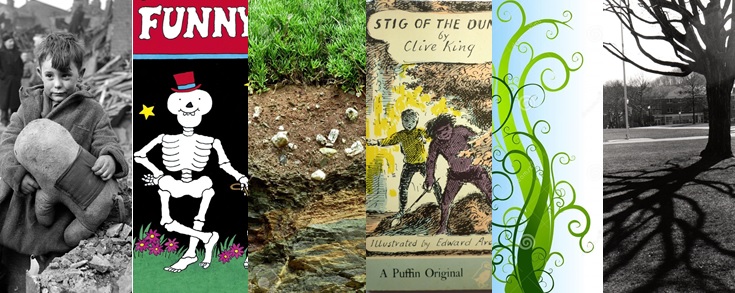
Year 3
Welcome to Year Three and Key Stage two.
Year 3
Welcome to Year 3! This is an enriching year where children continue their learning journey with curiosity, creativity, and confidence. In Year 3, pupils become more independent learners, exploring new topics in reading, writing, maths, and beyond. Our classroom is full of fun, discovery, and teamwork as we develop new skills and strength our friendships. We encourage children to ask questions and discover new ideas as they develop their sense of wonder about the world. We’re looking forward to a fantastic year of learning and growing together!
Reading and Writing
In Year 3, reading is an exciting way to explore new ideas and stories. Children begin to read longer books with more complex words and sentences, helping them understand characters, settings, and plots in greater detail. They learn to read aloud with expression and discuss what they have read, sharing their thoughts and opinions. Reading regularly also helps build new vocabulary and improves writing skills. We make reading fun and engaging to spark children’s imagination but most importantly, it encourages a love of stories and learning that will last a lifetime.
In Year 3, writing becomes a fun way for children to express their ideas and creativity. They learn to write longer sentences and organize their thoughts into clear paragraphs. Pupils begin to use exciting vocabulary, punctuation, and descriptive language to make their writing more interesting. They also plan, draft, and edit their work to improve it. Through stories, reports, and poems, children build confidence and learn how to communicate their ideas clearly and imaginatively. We work on our letter formation and begin to join our handwriting.
Mathematics
In Year 3, mathematics becomes an exciting journey of discovery and problem-solving. Children build on their knowledge of numbers, learning to add, subtract, multiply, and divide with increasing confidence. They explore fractions, measurements, and shapes, developing skills to solve real-life problems. Maths lessons encourage curiosity, logical thinking, and reasoning, helping pupils to understand how numbers and patterns work in the world around them. Most importantly, Year 3 maths is enjoyable and interactive, helping to inspire a lasting love of numbers and problem-solving.
Our Science Topics:
- Animals, including humans – We discover how muscles and skeletons help animals and humans move, support their bodies, and stay protected. We also explore nutrition and learn about the different foods needed to stay healthy and strong.
- Rocks – We investigate different types of rocks and find out how fossils are formed, uncovering stories from the past.
- Plants – We explore the parts of flowering plants and investigate what plants need to grow and thrive.
- Light – We have fun experimenting with light, discovering how it reflects and creates shadows. Children can even make shadow animals on the wall using a torch!
- Forces and Magnets – We explore how things move on different surfaces and how magnets attract and repel. We also learn why magnets attract some materials but not others, making science hands-on and fun.
Religious Education: Year 3
What does pilgrimage mean to individuals and communities?
We explore the idea of a special journey and the significance of places and journeys that people consider sacred or meaningful. Children learn about the experiences of pilgrimage for both individuals and communities, including the spiritual connections it can create. We also examine the diversity of pilgrimage practices, looking at local places of significance that are important to people for both religious and non-religious reasons.
Which religious communities can we find in our neighbourhood?
We investigate religious communities in our local area, across Lincolnshire, and near our school. Children explore the links between schools and communities, the diversity within these communities, and how communities have changed over time, including migration stories. We also look at how communities influence the wider world and the events that bring people together.
School-designed unit – The Lion, the Witch and the Wardrobe
Through this Christian-themed unit, children explore key themes such as good versus evil, courage, friendship and loyalty, and self-discovery, using the story to reflect on Christian values and personal growth.
Our work on global development helps children explore what is happening around the world. For example, we trace the journey of the cocoa bean from tree to chocolate bar, discovering how everyday products connect us globally. In our Food Forest topic, children consider important issues such as food, hunger, and sustainability. Additionally, our termly value lessons support personal growth, helping children understand what it means to be kind, compassionate, and to love others as God loves us.
History
Our history topics are explored in chronological order, helping children understand how the past has shaped the world today. We ask questions such as:
- Would you prefer to live in the Stone Age, Iron Age, or Bronze Age?
- What did the Ancient Egyptians believe?
- Why did the Romans settle in Britain?
We investigate both primary and secondary sources to learn more about the past, while thinking carefully about their reliability and limitations. This helps children develop critical thinking and a deeper understanding of history.
Geography
Our geography topics encourage curiosity about the world and its people. We explore questions such as:
Who lives in Antarctica? Why do people live near volcanoes? Are all settlements the same? Fieldwork gives our children hands-on experiences to better understand the world around them and make geography meaningful and exciting.
We also enjoy expressing our creativity through music, art and design, and design & technology, while building our computing skills using email, branching diagrams, coding and spreadsheets. In PE, we take part in a wide range of sports, learning to work confidently both as individuals and as part of a team. In Spanish we learn to introduce ourselves, our numbers and colours, family and our birthdays.
